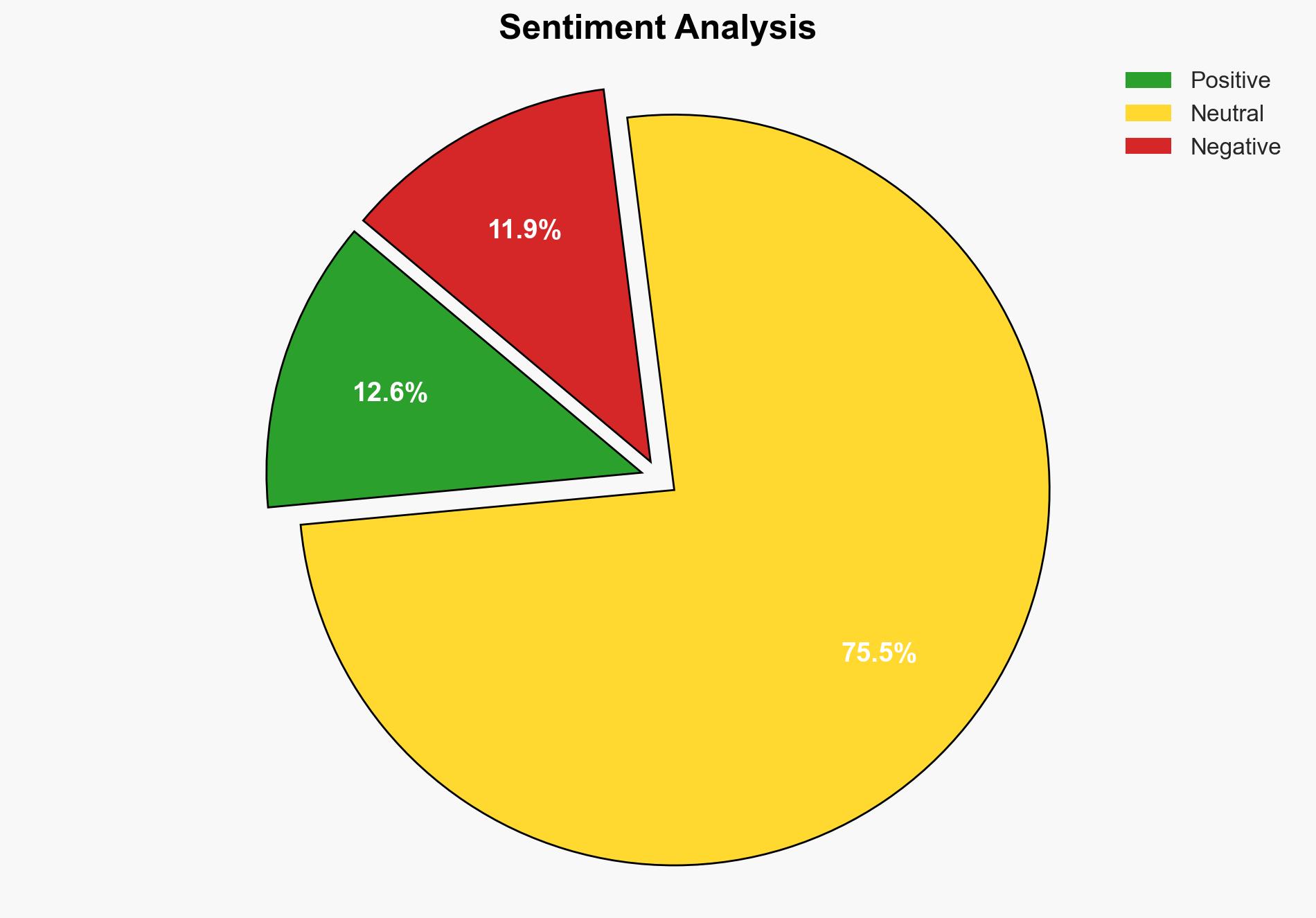US revokes temporary status for 532000 Cubans Haitians Nicaraguans and Venezuelans – Richmond.com
Published on: 2025-03-22
Intelligence Report: US revokes temporary status for 532000 Cubans Haitians Nicaraguans and Venezuelans – Richmond.com
1. BLUF (Bottom Line Up Front)
The US Department of Homeland Security has revoked temporary legal protections for approximately 532,000 individuals from Cuba, Haiti, Nicaragua, and Venezuela. This decision could lead to potential deportations starting in April. The revocation affects those who arrived in the US under a humanitarian parole program, which is now being terminated. This policy shift follows previous administrative decisions aimed at curbing perceived abuses of the humanitarian parole system. The decision is expected to face legal challenges and has already sparked criticism from various advocacy groups.
2. Detailed Analysis
The following structured analytic techniques have been applied for this analysis:
General Analysis
The revocation of temporary status is a significant policy shift with broad implications. The decision aligns with previous administrative efforts to restrict immigration pathways and enforce stricter immigration controls. The humanitarian parole program had been a critical legal tool for individuals fleeing war and political instability. The termination of this program may lead to increased deportations and strain diplomatic relations with the countries involved, particularly those that are unwilling or unable to accept deportees.
3. Implications and Strategic Risks
The revocation poses several strategic risks:
- National Security: Potential increase in unauthorized border crossings as individuals seek alternative entry methods.
- Regional Stability: Strained relations with countries like Venezuela and Nicaragua, which may refuse to accept deportees.
- Economic Interests: Impact on labor markets, particularly in sectors reliant on immigrant labor.
- Humanitarian Concerns: Potential for increased humanitarian crises as individuals face deportation to unstable regions.
4. Recommendations and Outlook
Recommendations:
- Engage in diplomatic efforts with affected countries to facilitate the acceptance of deportees.
- Enhance border security measures to manage potential increases in unauthorized crossings.
- Implement support programs for communities affected by the policy change to mitigate economic impacts.
Outlook:
In the best-case scenario, diplomatic negotiations lead to cooperative agreements with affected countries, minimizing deportation issues. In the worst-case scenario, refusal by certain countries to accept deportees results in increased tensions and unauthorized immigration. The most likely outcome involves a combination of legal challenges and gradual policy adjustments as the administration navigates the complex implications of the revocation.
5. Key Individuals and Entities
The report mentions significant individuals and organizations, including:
- Kristi Noem
- Donald Trump
- Karen Tumlin
- Justice Action Center
These individuals and entities are central to the policy decision and its subsequent legal and social challenges.





